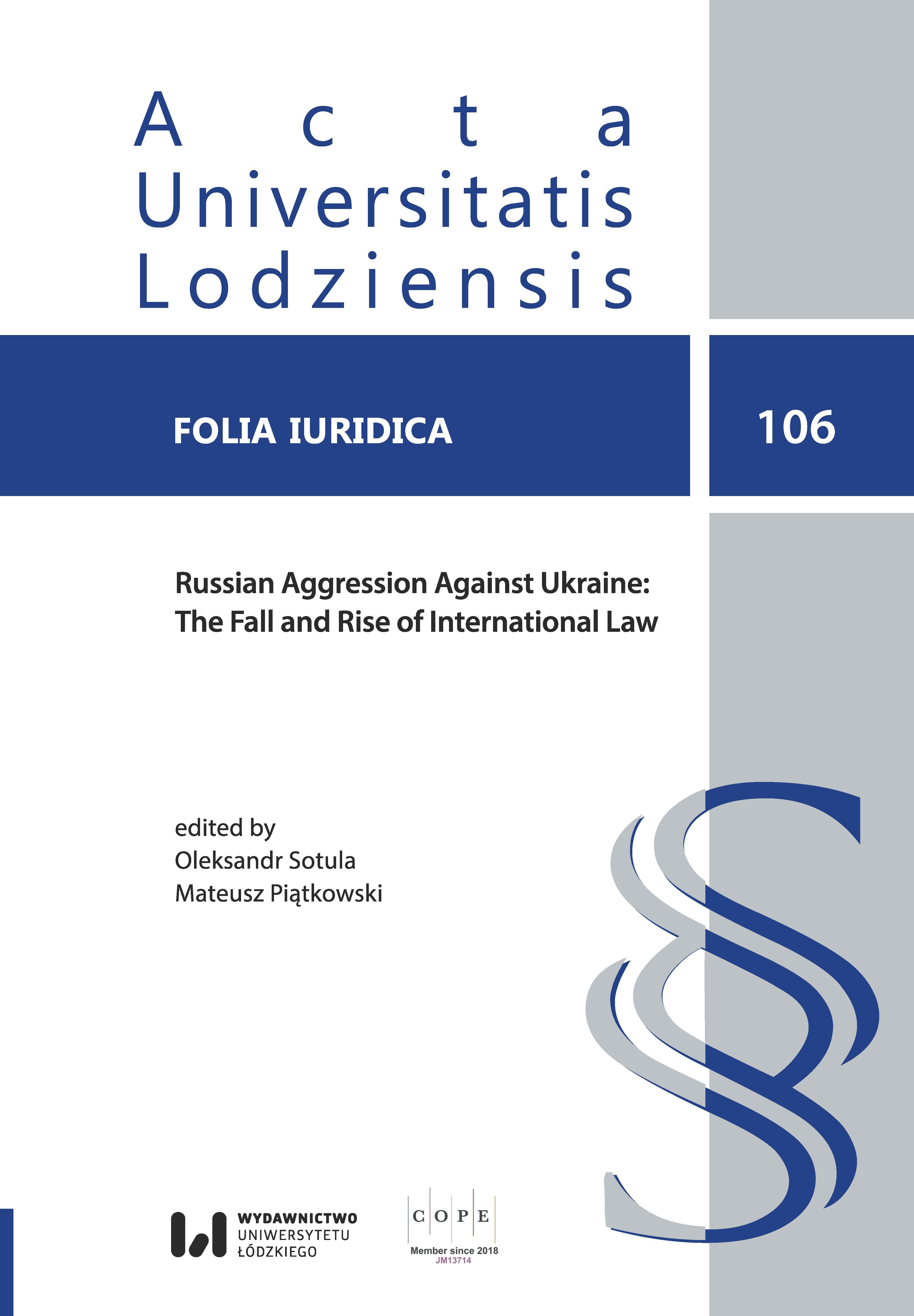Targeting in the Russian-Ukrainian War: The Crossroads of Legal and Technical Aspects
Targeting in the Russian-Ukrainian War: The Crossroads of Legal and Technical Aspects
Author(s): Wiesław GoździewiczSubject(s): Law, Constitution, Jurisprudence, Russian Aggression against Ukraine, Russian war against Ukraine
Published by: Wydawnictwo Uniwersytetu Łódzkiego
Keywords: International Humanitarian Law; attacks; targeting; incidental harm (collateral damage); Rendulic rule
Summary/Abstract: Article 82 of Additional Protocol I to the Geneva Conventions requires competent legal advisors to be available, when necessary, to advise military commanders at the appropriate level on the application of International Humanitarian Law (IHL). One of the most important fields of IHL application which requires legal advice is attacks on the enemy, which need to follow the principles of military necessity, humanity, distinction, and proportionality, and are also affected by the requirement to undertake all feasible precautions in order to avoid or at least minimise incidental harm to civilians (collateral damage). One of the ways to ensure that attacks on enemy remain compliant with the requirements of IHL is by adopting appropriate targeting procedures and tools facilitating avoidance or minimising collateral damage, such as the Collateral Damage Estimation Methodology (CDEM). Media coverage of the Russian-Ukrainian war has contributed significantly to the misperception of IHL provisions applicable to targeting. During the war in Ukraine, political declarations were made several times that a war crime had occurred in the form of a deliberate attack on the civilian object. However, the legality of a particular strike can rarely be judged based upon the results of the strike or via post-strike Battle Damage Assessment (BDA). The so-called Rendulic rule emphasises that military necessity, proportionality, and precautions are judged a priori, based upon by the information available at the time of the decision (circumstances ruling at the time) and not on the basis of information emerging after the decision had been made. Legal Advirsors’ role in the targeting process requires them to possess at least the basic knowledge of the Targeting Process and the CDEM, general military expertise in the fields of Tactics, Techniques and Procedures (TTPs), as well as effects of the employment of particular weapon systems in given circumstances. This should be supported by thorough knowledge of IHL, in particular the practical aspects of its application in military operations. It should be about the intersection of legal and technical expertise.
Journal: Acta Universitatis Lodziensis. Folia Iuridica
- Issue Year: 2024
- Issue No: 106
- Page Range: 35-53
- Page Count: 19
- Language: English

